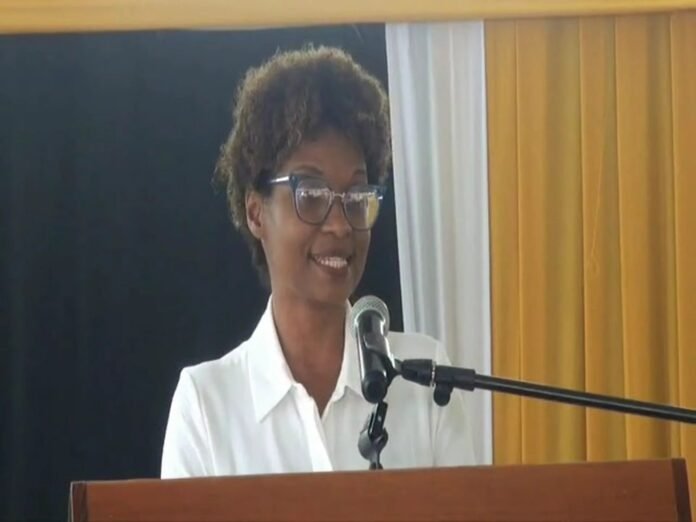Kingston’s Call for Change: Tackling Educational Apartheid in Jamaica
KINGSTON, Jamaica — In a passionate address at Shortwood Teachers’ College, Stacey Knight, an educator and attorney-at-law, has raised a clarion call for a radical transformation of Jamaica’s education system. Describing the current state as “educational apartheid,” Knight highlighted the glaring inequalities that plague access to resources and student outcomes across the nation.
Knight, who is vying for the People’s National Party (PNP) candidacy in St Andrew North Eastern, spoke at an educators’ forum where she painted a stark picture of the educational landscape. “We have a learning crisis in Jamaica,” she declared, referencing the 2021 Education Transformation Commission Report led by Professor Orlando Patterson. The report revealed a shocking statistic: 70 percent of students leave high school without any certification, and many exit the system without acquiring marketable skills.
The numbers don’t lie. Knight pointed out that national pass rates are alarmingly low, with only 41 percent of students passing mathematics, 49 percent in science, and 55 percent in language arts. “We need to move away from rote learning,” she emphasized, expressing concern over students’ struggles with analytical thinking. The situation is dire, especially when only 28 percent of students who sat the Caribbean Secondary Education Certificate (CSEC) exams in 2019 managed to pass five or more subjects, including English and mathematics.
Knight believes the roots of this learning crisis can be traced back to early childhood education. She noted the lack of attention to gender differences in learning, which has led to girls outperforming boys, alongside a concerning shortage of male teachers in the system. With Jamaica’s tertiary enrolment rate sitting at a mere 27 percent, significantly lower than that of comparable nations, the need for reform is urgent.
“There is a lack of cohesion in the organisation of education in Jamaica,” Knight stated. “Poor performers in primary school cannot be expected to become good performers at the secondary level.” Her vision includes improvements in early childhood education, technical and vocational training, and inclusive education for individuals with physical and mental challenges.
Knight also urged teachers’ colleges to evolve beyond the traditional focus on the 3Rs — reading, writing, and arithmetic. “We need to adopt learner-centred approaches and emotional learning,” she said, advocating for a more holistic education system that nurtures the whole child.
Senator Damion Crawford, the PNP’s spokesperson on education, echoed Knight’s sentiments during the forum. He called for a realignment of the education budget, noting that a staggering 82 percent of spending goes toward teacher salaries, leaving little for essential teaching resources. “While education is nominally free, hidden costs like transportation and meals create barriers to learning,” he pointed out.
Crawford highlighted the disparities in school performance, contrasting Campion College’s impressive 98 percent success rate with schools that struggle to achieve even 1 percent. He proposed that the next PNP administration would ensure at least one nutritious meal per student daily, increasing the current meal allowance from $180 to $400, and introduce incentives to attract teachers to underserved rural schools.
As the conversation around education in Jamaica continues to evolve, the question remains: how can we bridge the gap and ensure every child has access to quality education? The voices of educators like Stacey Knight and Senator Crawford are crucial in shaping a future where educational equity is not just a dream but a reality for all Jamaican children.

